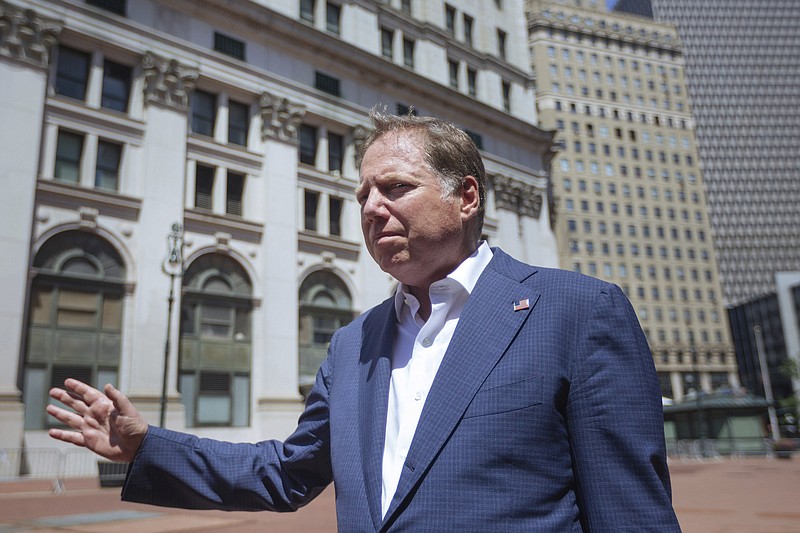Two weeks ago, I wrote that perhaps, at long last, we had reached a tipping point in Donald Trump's popularity, and I stand by it. On Thursday, a poll conducted by Fox News showed him trailing Joe Biden by 12 percentage points; the Tulsa arena hosting his comeback rally on Saturday was two-thirds empty.
Yet I fear we've reached a far scarier juncture: Trump seems to be attempting, however clumsily, to transition from president to autocrat, using any means necessary to mow down those who threaten his re-election.
Whether he has the competence to pull this off is anyone's guess. But for over three years, he's been dismembering the body politic, institution by institution, norm by norm. What has largely spared us from total evisceration were honorable civil servants and appointees.
Trump has torn through almost all of them and replaced them with loyalists. What we have left is an army of pliant flunkies and toadies at the agencies, combined with the always-enabling Mitch McConnell and an increasingly emboldened attorney general, William Barr.
Will Barr's depredation ever approach some kind of asymptote? Doubtful. Last week, his Justice Department argued in court for John Bolton to heed its temporary emergency restraining order and pull all copies of his memoir from the shelves ahead of its publication this week. (It was denied.)
Barr then tried to replace Geoffrey Berman, the U.S. attorney for the Southern District of New York, with a Trump loyalist who had zero prosecutorial experience. (Berman stepped down, but Trump did not get the appointee he desired.)
That was all on Friday and Saturday. Just Friday and Saturday.
In recent months, Trump has escalated his war on both the safeguards of American government and his own citizenry. In April and May, he got rid of five inspectors general. He has replaced intelligence community veterans with partisan loyalists who've raised questions about the validity of the Russia probe. He's threatened to use the military to quell civic unrest.
In her new book "Surviving Autocracy," Masha Gessen points out that our system of government is more prone to an "autocratic attempt" than one might assume. Our other two branches of government should theoretically check executive power. But that executive power sometimes spills into their turf. The president appoints federal judges, for instance, stocking the bench with his favorites like so many farm-raised trout, and the Justice Department is part of the executive branch, not the judiciary. "Its independent functioning is determined by tradition," Gessen writes. Not design.
The Cabinet departments and agencies recently denuded of their inspectors general are likewise part of the executive branch. How can they oversee presidential excesses if the president isn't acting in good faith? The system is predicated on good faith.
We may yet find it. Of all people, Lindsey Graham, the chairman of the Senate Judiciary Committee, stood between Trump and his mad lunge for power in the Southern District, saying he'd allow New York's Democratic senators to veto Trump's pick.
But the true stuff of my nightmares - and the ultimate authoritarian ambush - would be a move by Trump to suppress the vote by a means I haven't yet imagined. (Voting is left up to the states.)
Three years ago, a friend of mine shrewdly pointed out that Trump's election would be like one long national Milgram experiment, the famous psychological study from the 1960s that revealed just how susceptible people are to authority, how depressingly willing they are to obey even the most horrifying commands.
Participants were told by a researcher to administer shocks of increasing intensity to test subjects every time they answered a question incorrectly. Two-thirds of those participants allowed themselves to deliver the maximum punishment, 450 volts, though the test subjects were screaming in pain.
Luckily, the test subjects were actors and the electric shocks were fake. But Trump's enforcers are real. And so are the shocks to our system.
The New York Times
